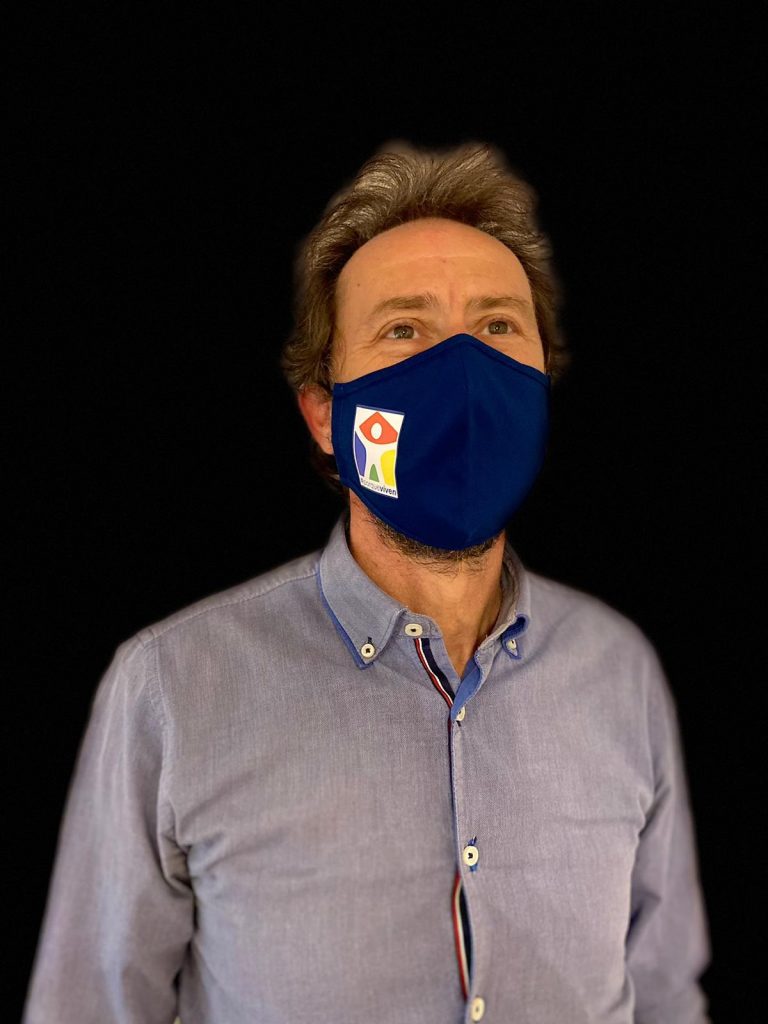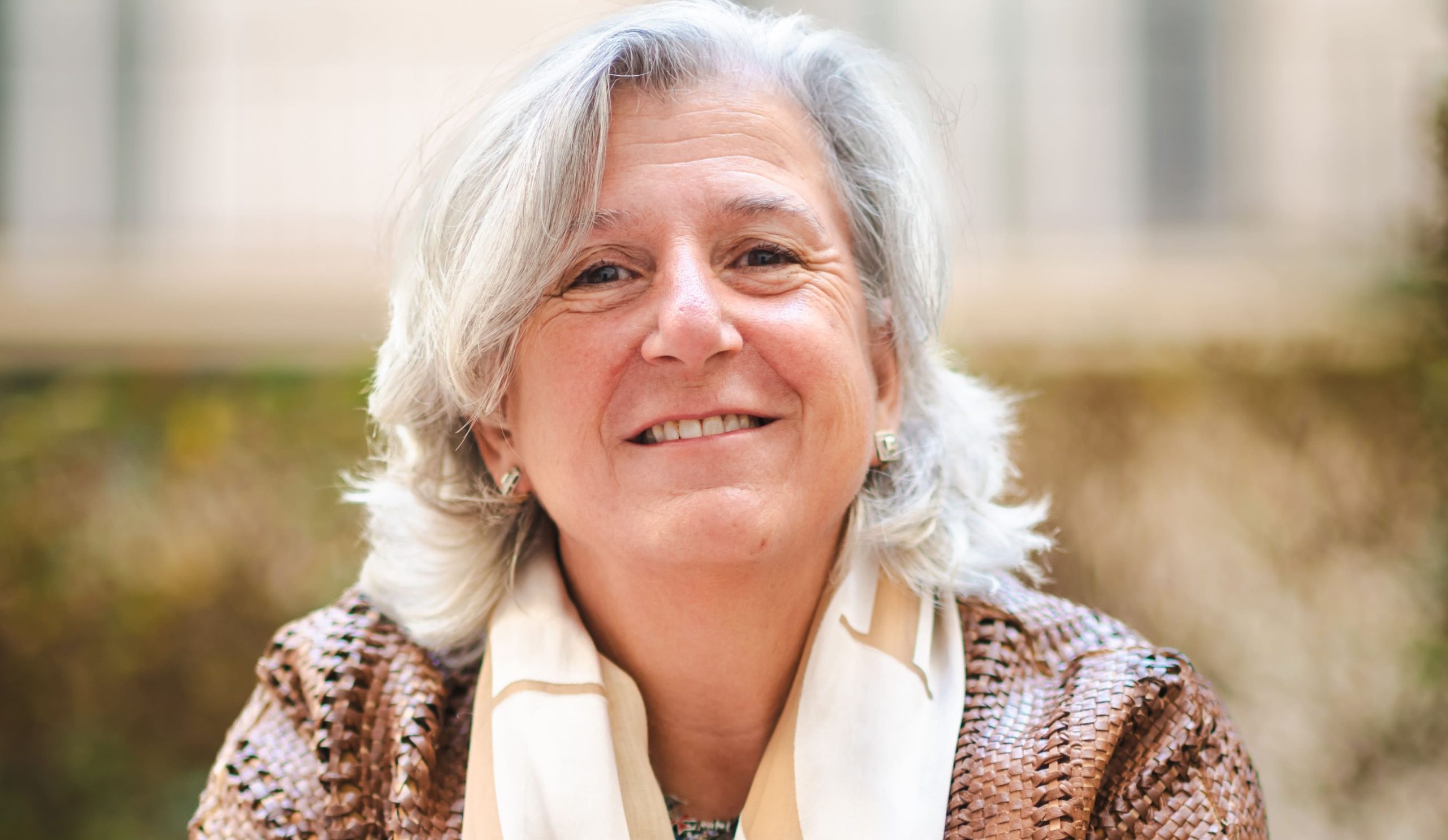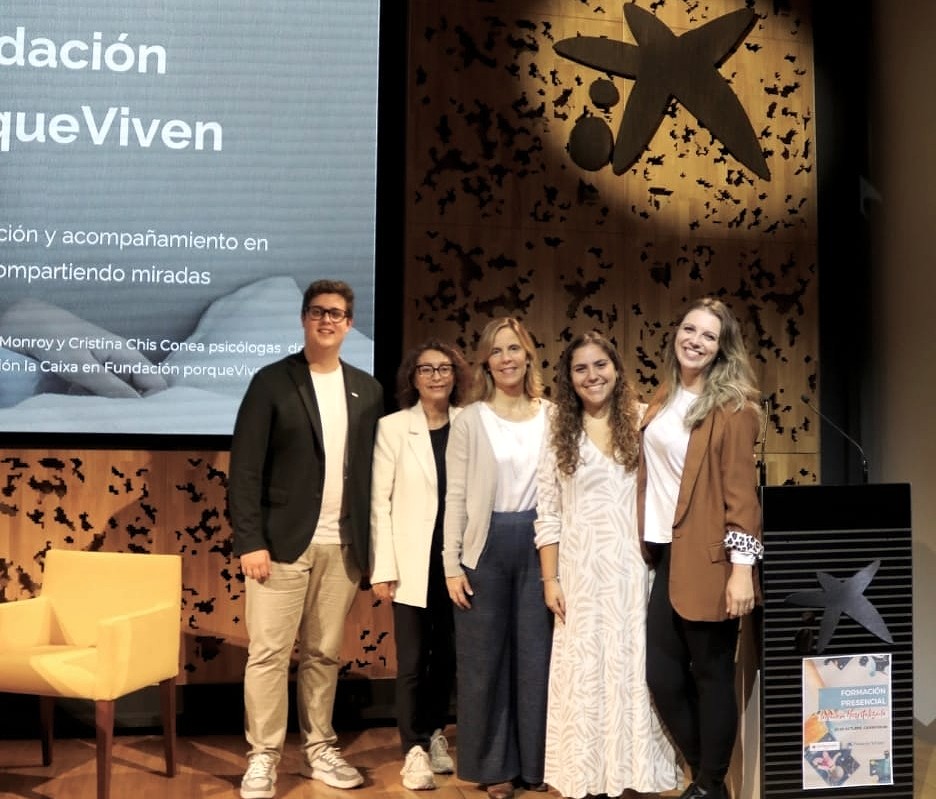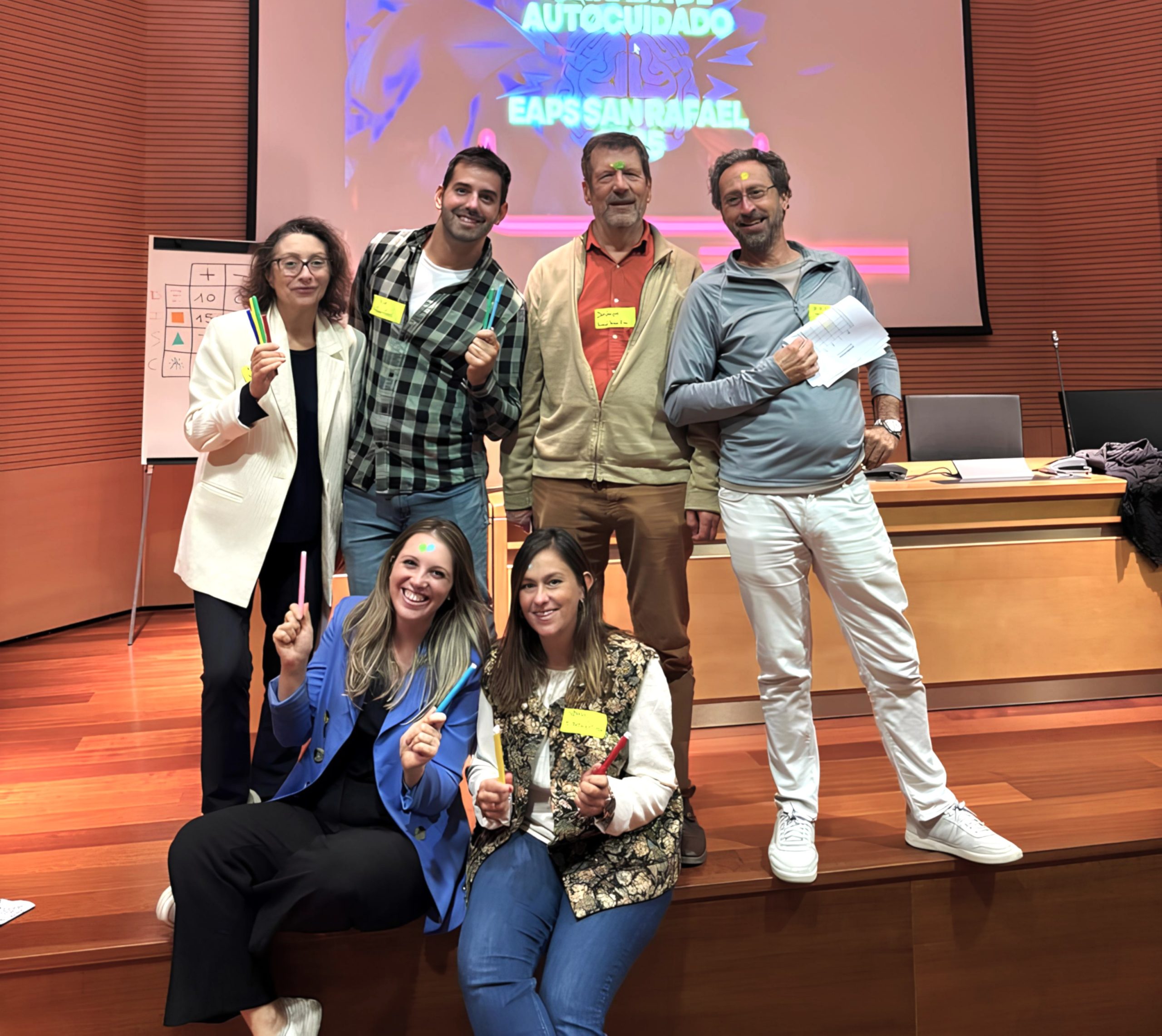We reproduce the interview that the journalist Ana González-Besada conducted on January 7 with the doctor José Carlos López Seisdedos , director of Fundación porqueViven , in which he explains the current situation and needs of the Pediatric Palliative Care .
What is palliative care, and what about paediatric care?
We can start by defining Palliative Care with what the WHO : "Palliative care improves the quality of life for patients and families dealing with life-threatening illnesses by mitigating pain and other symptoms, and providing spiritual and psychological support from the time of diagnosis to the end of life and during grief."
The European Palliative Care Association explains everything that this care entails: "Palliative care is the total and active care of patients whose disease does not respond to curative treatment. To provide palliative care, it is essential to control pain and other symptoms and psychological, social and spiritual problems. Palliative care is interdisciplinary in its approach and includes the patient, the family and their environment. In a sense, doing palliative care is offering the most basic of the concept of care: what meets the needs of the patient regardless of where they are being cared for, either at home or in the hospital. Palliative care affirms life and considers death as a normal process; they neither hasten nor delay death. They aim to preserve the best possible quality of life until the end."
In palliative care we work for people's lives .
If we talk about Paediatric Palliative Care, going back to what the WHO tells us, it is about the "total active care of the child's body, mind and spirit, also including support for the family. They begin when a life-threatening illness is diagnosed and continue regardless of whether or not the child is treated for the disease itself."
The PedPal (Spanish Society of Pediatric Palliative Care) says that they are a form of specialized care, offered by multiple professionals, for those children and their families who face serious and chronic illnesses that seriously threaten life. They consist of the active and total assistance of the child's body, mind and spirit. They focus on preventing and relieving symptoms, pain, and stress, as well as supporting the psychological, spiritual, and social aspects of the patient and their family. Paediatric palliative care guarantees respect for their dignity and the right to autonomy, through continuous and individualised care. The goals are to be able to meet the child's physical and emotional needs and to maintain family "functioning" as normally as possible, including sibling support services and support (break times) for the family.
But if we go beyond academic definitions; what we do in Palliative Care says it very well Cicely Saunders , the ideologue of the modern concept of what palliative care is: "You matter for who you are, you matter until the last moment of your life and we will do everything in our power, not only so that you die peacefully, but also so that, as long as you live, you do so with dignity."
In palliative care we work for people's lives, we try to ensure that the life of each person living with an incurable disease and that of their caregivers, has everything that is necessary to ensure them a full life, so palliative care is a right and should be one more provision of health care.
Pediatric palliative care is the total active care of the child's body, mind, and spirit, including family support .
What is the difference between paediatric and adult palliative care?
I have to start by saying that, in general, socially, if we talk about Palliative Care, we immediately think of an adult with a disease for which existing treatments no longer work and that we must ensure that their death is without pain or suffering, focusing care on the physical. No one imagines that there are children who die and, therefore, it is not thought that there are pediatric patients who may need palliative care as is the case with adults.
For me it is the most decisive starting point of the reality of Paediatric Palliative Care, because we have to change that paradigm to talk about infant death without taboos and that this leads to ensuring that the care of lives that ended prematurely is just another health benefit.
At Paediatric Palliative Care we ensure the dignity of children .
In addition, the social impact of caring for a child who needs palliative care implies the destructuring of family life and in most cases that the family loses the possibility of playing its role in society. Family life is focused on caregiving, social isolation occurs, work is lost or it is necessary to reduce working hours, intra-family relationships focused on the patient are unbalanced with less dedication to the rest of the family members, economic needs skyrocket and all this, on too many occasions, for very long periods of time.
As is evident, we are talking about a child, a person, who, due to his or her age, is growing, is developing physically, emotionally and cognitively. This fact determines that the way they communicate, the types of support, how they face the reality they live or the possible life experiences that may have helped them to build their resilience capacity, are very different from those of adults or non-existent.
The initiation of paediatric palliative care occurs (or should occur) with the diagnosis of an incurable disease, or at the time when the ineffectiveness of existing treatments is determined. It is not (it should not be linked only) to the end-of-life process, as may occur more frequently with adults.
Another important aspect is the variability in the age of the patients, since care can begin in the prenatal phase with the diagnosis of limiting diseases or with a lethal prognosis, continues in the neonatal period and lasts until the ages of young adults, which due to their clinical characteristics (diagnosis in childhood, clinical history, and even weight or size) require a pediatric approach to their care
The child and the family constitute the unit of care and whenever possible, care (hospitalization) should be ensured in the family home. The family's home is the best place for the sick child to develop, their environment, their room with their toys, their things, their siblings, etc. And this is possible because parents are deeply involved as caregivers, taking responsibility for very complex care and participating in decision-making.
In Paediatric Palliative Care there is a significant limitation in the availability of specific drugs for children. Almost all available drug treatments are developed, formulated, and licensed for use in adults and are rarely available in the form of a discontinuation (especially pain treatments with extended-release opioids) that are easy to administer to children.
We must ensure that the care of lives that ended prematurely is just another health benefit .
Technological advances make it possible to prolong the survival of a greater number of children with complex pathologies that until recently would have led to rapid deterioration and death, so professionals must face a relatively new area of knowledge that needs more options for training and specialized training.
The death of a child has greater emotional implications than that of an adult and therefore, the care of the patient himself, family members and caregivers to accept the failure of treatment, the irreversibility of the disease and death, must begin early, from the very diagnosis of the disease. Grief does not begin after death, it begins at the time of diagnosis of the incurable disease.
Finally, with regard to legal and ethical issues, it must be considered that, although the legal referents are the parents or guardians of the child, it must be ensured that the child's legal rights to be informed, their wishes and their participation in the choice are respected, whenever possible.
In Paediatric Palliative Care the variety of diseases is much wider than in the world of adults, and a large majority of them have no treatment at all .
Is there a law in Spain that guarantees palliative care?
There is no law that guarantees this essential right and only, following the recommendations of the Council of Europe of 1999 and 2001, which advocate the definition of Palliative Care as a right and one more provision of health care, in 2003, with Law 16/2003 of May 28, "Law of Cohesion and Quality in the National Health System" was guaranteed as one of the basic benefits for all Spanish citizens care for terminally ill patients.
Royal Decree 1030/2006 of 15 September, which establishes the portfolio of common services of the National Health Service, in its Annex 2, section 7 defines palliative care for terminally ill patients: "Palliative care for terminally ill patients includes the comprehensive, individualised and continuous care of people with an advanced disease, not susceptible to receiving treatments for curative purposes and with a limited life expectancy (generally less than six months) as well as of the people linked to them. Their therapeutic objective is to improve their quality of life with respect to their system of beliefs, preferences and values."
The main shortcomings of these regulations are that they do not fit the definition of Palliative Care established by the WHO; that equate palliative care with hospice care, or rather limit it to it; that do not include patients with complex chronic pathologies; and in the paediatric field, Paediatric Palliative Care is never mentioned. It should be noted that the EAPC – Atlas of Palliative Care in Europe 2019, indicates that there is no legislation or regulation on PPC in Spain.
Can a child live with dignity receiving palliative care?
The concept of dignity, like that of quality of life, is very subjective, but I believe that in the way we work in Paediatric Palliative Care we ensure the dignity of the children we serve. Why do I say this?
In the first place, because we consider the child (patient) as a person, with the same rights as adults, guided by the principle of caring for the best good of the child, respect for their dignity and autonomy is guaranteed thanks to individualized and continuous attention. Living with an illness or situation with palliative needs does not make a family or a child, or their lives, undignified lives.
If living with dignity implies that the patient can develop and grow at home, surrounded by his things and cared for by his family, that he can go to school, that family members can reconcile care with working life, that they have access to a social life with participation and access to community services, that they receive specific care to meet their particular physical needs, psychosocial and spiritual, that they have support in care, that benefits and the recognition of social rights arrive quickly, that they can be cared for equally regardless of where they live... I have to affirm that patients who receive pediatric palliative care have a dignified life.
But the question is not whether the paediatric patient who receives Palliative Care can have a dignified life, the question that worries me is whether throughout Spain, all patients who need Paediatric Palliative Care and their families can have a dignified life. The reality is that, although we are on the way, today there is neither equity nor universal accessibility to paediatric palliative care.
In Paediatric Palliative Care there is a significant limitation in the availability of specific drugs for children .
What resources are needed to carry out a palliative care service?
Last September 2020, the IV Congress of the PedPal – Spanish Society of Pediatric Palliative Care was held and from it came the Madrid Manifesto 2020 (I invite you to read it ) which has the important value of showing what patients and families who need PPC are asking for, and also includes what the professionals who care for them ask for to ensure ideal care.
Completing this manifesto, the document "Paediatric Palliative Care in the National Health System: Criterion of Care" of the Ministry of Health, Social Services and Equality of 2014, recommends that paediatric palliative care teams should be interdisciplinary, made up of medical professionals specialised in paediatrics, nursing, psychology, social work and the figure of the referent or spiritual companion.
The teams should be made up of a number of professionals and equipped with the resources and means that allow them to ensure the home care of patients, whenever possible, providing the necessary means at home for the care of the patient, ensuring the training of parents for the care and home therapies that are necessary; this attention must be 24 hours a day, 365 days a year, at least by telephone; if care is provided in a health centre, admission must be made in a single room and if it is carried out in an intensive care unit, the child must be accompanied 24 hours a day; respite periods must be ensured for caregivers at home or in specific day centers; the care and care of families after death must be facilitated and enabled; and finally, it is essential to continuously ensure the care (psychological and emotional) of the professionals involved in the provision of paediatric palliative care.
There is no law that guarantees the essential right to Palliative Care .
What is the PORQUEVIVEN Foundation?
PORQUEVIVEN is a foundation that works to improve the care of children who need palliative care and their families. Although there are already some other entities with this vocation in our country, it is the only one that ensures care in the family home, such as respite, physiotherapy or music therapy, among others, with qualified professionals and fully coordinated with the public health services.
The children who arrive at a Paediatric Palliative Care Unit are patients with always serious illnesses that will cause death, who need specific care to help them "not to die well", but to live as well as possible until the end of their lives, them and their socio-family environment. This implies a series of resources and assistance at different levels that public health, at present, cannot cover.
Aware of this reality and the response that health services can give in the different autonomous communities, in 2009 a group of clinical professionals, psychologists and social workers who were dedicated to caring for children who required palliative care created porqueViven .
This group of professionals detected that the specific care for these children was not attended to as a whole by any entity, neither public nor private, and created the association to try to respond to this need, constituting it as a Foundation in 2014.
The teams should be made up of a number of professionals and equipped with the resources and means that allow them to ensure the home care of patients .
From its origin, the PORQUEVIVEN Foundation (FPV ), has worked with the aim of complementing public services, maintaining total coordination that ensures care from a single and specific intervention plan for each patient and family and the continuity of care in any area where the patient is.
Two main objectives determine the actions of PORQUEVIVEN:
- To improve the care of these children and their families through different services (family respite, physiotherapy and music therapy at home, financial aid, orthoprosthetic marial bank, volunteering, temporary accommodation, psychosocial and spiritual care) that provide care that helps to improve the physical, psychological, social and spiritual well-being of patients and families.
- to support the promotion and development of paediatric palliative care throughout the national territory, mainly through the dissemination at the institutional and social level of the needs that exist and the reality experienced by the patients and families served, in order to provoke the necessary demand to encourage the creation of specific care services; and supporting the training of professionals and sharing experience in the creation and management of paediatric palliative care.
PORQUEVIVEN was created because a group of professionals detected that children with palliative care needs were not cared for as a whole by any entity, neither public nor private .
In addition, we have a dream that has already begun to come true in its design phase, which is to create the first comprehensive paediatric palliative care centre in Spain, according to the model of the " Children Hospices " that exist in other European countries (Great Britain has more than 50 " Children Hospices ", without any existing in our country). A " Hospice "It is not a residence or a center for hospital admission, it is a home where each family receives with the son or daughter it cares for, to provide them with a space where care, rest and family life can be reconciled in the best possible way and where, when necessary, families can live, with the greatest possible peace, the farewell of his son or daughter.
Children who arrive at a Paediatric Palliative Care Unit are patients who are helped to live as well as possible until the end of their lives .
How is the PORQUEVIVEN Foundation financed?
This is the simplest question to answer, because everything that PORQUEVIVEN does is the result of the generosity and interest of people, companies and associations and foundations that have been interested in the world of paediatric palliative care and have trusted in the foundation's intervention proposal ( >>DONUT ).
La Caixa Foundation through the Comprehensive Care for People with Advanced Diseases program, endorsed by the World Health Organization (WHO), it complements the Administration's action in the field of palliative care and care for the advanced sick in Spain; in our case in a special way supporting our EAPS (Psychosocial Care Team)
PORQUEVIVEN has also received public subsidies, but there has not been the necessary continuity to have support that responds to the vocation of complementarity with the public services that the foundation has.
This form of financing has the risks that all third sector entities know and with which we live every day, especially when it is a small entity, which also works in a very unknown and even hidden field, due to the fear and impact that it entails.
Everything we do at Fundación PORQUEVIVEN is the result of generosity and in the interest of people, companies and associations and foundations .
The lack of predictability of resources limits the accessibility of families and patients to essential services for their daily lives (all our services have a waiting list) and limits the possibility of expansion throughout the national territory, which does not have to be with the specific brand of PORQUEVIVEN, but to support any other entity that wants to include paediatric palliative care services in its DNA, They also need the resources that allow us to support them and share our experience and good practices with them.
José Carlos López Seisdedos (Director of the PORQUEVIVEN Foundation).
NOTE : This article has been published on the health portal iHEALTH ( >> link )
#porqueviven #cuidadospaliativos #paliativospediátricos #cuidadospaliativospediátricos #finaldevidafundlacaixa






